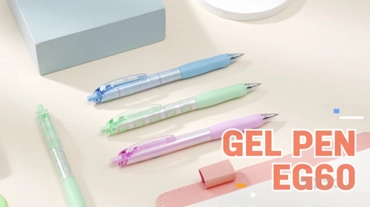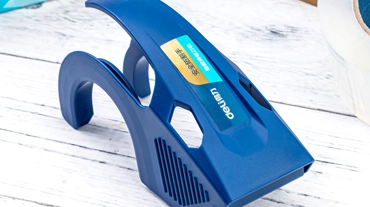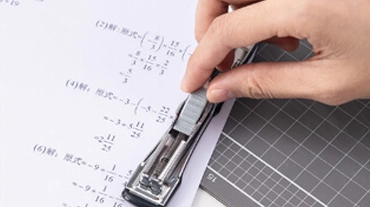There are numerous types and styles of ballpoint ballpens, which differ in quality, ranging from high, medium, to low grades. However, from a categorization perspective, they can be divided into two types: oil-based ballpoint ballpens and water-based ballpoint ballpens.
Ballpoint ballpens with plastic injection molded barrels and pen sleeves are called all-plastic ballpoint ballpens, while those with stainless steel sleeves manufactured through pressing and grinding are known as half-steel ballpoint ballpens. Ballpoint ballpens with stainless steel barrels and sleeves are called full-steel ballpoint ballpens. The all-plastic type is mostly disposable, meaning that they are discarded once the ink runs out. The half-steel and full-steel types mostly employ replaceable refill structures. The ball tips of ballpoint ballpens come in two types: bullet tip and needle tip, which are made of copper alloy, stainless steel, or engineering plastics respectively. The balls are mostly made of stainless steel, hard alloys, or alumina oxide, with the diameter of the medium tip ball being 0.7 millimeters and the fine tip ball being 0.5 millimeters. Water is stored in either fiber bundle or non-fiber bundle form, with ink colors including red, blue, black, and green. Water-based ballpoint ballpens have the characteristics of both fountain pens and oil-based ballpoint ballpens, enabling smooth and even writing, making it an ideal tool for writing.
The ball tips mostly employ stainless steel or hard alloy materials. The diameter of the ball determines the thickness of the stroke. The common ball diameters are 1 millimeter, 0.7 millimeters, and 0.5 millimeters. The ink of a ballpoint point is specially made by mixing colorants, solvents, and thickening agents. The common colors are blue, black, and red. Ordinary ink is mostly used for general writing, while special ink is often used for archival writing, with a mark on the pen core.
Oil-based ballpoint ballpens are the first generation of ballpoint point products, having been on the market for over 60 years since their mass production. With long-term improvement and refinement, the production process of the oil-based ballpoint point has become mature, with stable product performance, a long storage period, and stable writing performance. It has now become a traditional product in the ballpoint point category. The ink used in oil-based ballpoint ballpens has a high viscosity, making it heavier to write with.
Monochrome ballpoint ballpens: these are the most common ballpoint ballpens, usually available in blue, black, and red.
Two-color ballpoint ballpens: usually available in red and blue.
Three-color ballpoint ballpens: available in red, blue, and black.
Four-color ballpoint ballpens: available in red, blue, black, and green. In addition to these four types, there are also six-color, eight-color, and even twelve-color ballpoint ballpens.
Disposable ballpoint ballpens, whose barrel is the pen core and cannot be refilled, meaning that they must be discarded once the ink runs out.
Ballpoint ballpens with replaceable pen cores, with functions such as buttons, springs, locks, and restoration.
Barrels that can be rotated to extend or retract the pen core.
There are also new types of ballpoint ballpens that combine ballpoint ballpens with fountain pens, pencils, electric pens, miniature light bulbs, and others.




